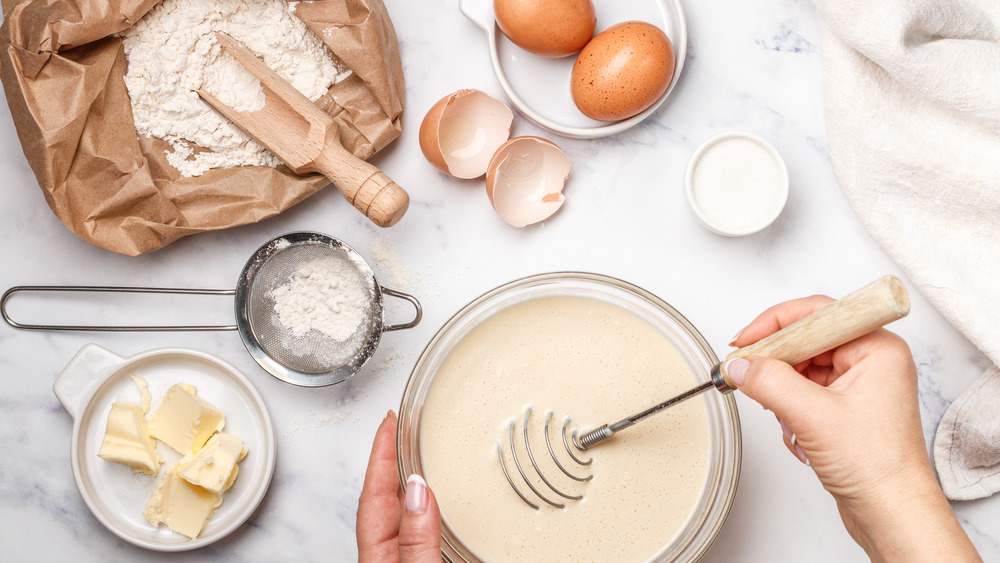Why Ina Garten Always Keeps These Foods At Room Temperature
There's just something about Food Network star Ina Garten, aka The Barefoot Contessa, that makes us want to take each and every piece of food and lifestyle advice she has to offer. Whether she's recommending dried currants, not raisins, for soda bread or encouraging home cooks to add booze to everything from mashed potatoes to apple cake, it's gonna be an automatic "yes" from us. That's why when Garten gave The New York Times a little tour of her home kitchen – sharing things she likes such as antique silver spoons, butcher blocks, and homemade vanilla extract – we were all ears.
In the resulting video put out by NYT Cooking, viewers get a glimpse of the elegance of Garten's East Hampton kitchen (via YouTube). Some of the items the doyenne recommends are not surprising – what home cook doesn't like Le Creuset cookware or Maldon sea salt? A quick aside Garten makes is less predictable. Gesturing towards her impeccably organized kitchen counter, Garten notes four items that she always keeps at room temperature: garlic, eggs, lemons, and oranges. That made us wonder: why are these ingredients better when kept outside the cool confines of the fridge?
Room-temp eggs are better for baking
When it comes to baking, it's important to keep certain ingredients at room temperature so that batters and doughs come together easily and achieve the right texture. According to Epicurious, the temperature of your eggs and butter "can make or break a cake." In the article, Shauna Sever, author of Midwest Made: Big, Bold Baking from the Heartland explains that ingredient temperature is indispensable to building proper structure in cookies, cakes, and quick breads, and that utilizing room temp liquids, fats, and eggs is "the key in achieving a nice, velvety batter."
This is particularly important when it comes to eggs. When making cookies or cake with the "creaming" method – beating butter and sugar until the mixture takes on air and the sugar's crystals dissolve (via Encyclopedia Britannica) – adding cold eggs to the butter mixture can immediately curdle it. As Stella Parks, author of BraveTart: Iconic American Desserts tells Epicurious, "Curdled cake batters tend to rise poorly, so the finished cake will be rather dense."
Keep 'em cool, not cold
When it comes to storing garlic, Garten is right on the money: this allium does best in a cool – but not cold – spot (via The Spruce Eats). According to The Kitchn, garlic bulbs stashed in the fridge will start to sprout in just a few days, and as sprouted bulbs can taste bitter, it's best to avoid that. Stored between 60 and 65 degrees, garlic will stay fresh for weeks or even months. And although Garten keeps it out on her counter, it's actually best to keep it in the dark, as light can encourage mold growth: think a cupboard, drawer, or pantry.
So what about Garten's bowls of lemons and oranges? In the video, she's cryptic about the subject, stating only that "lemons are better at room temperature because they have more juice." According to The Kitchn, Garten is correct: "the cool environment of the refrigerator causes the juice-holding membranes in lemons and other citrus to firm up," making it harder to squeeze the juice out. So if you plan on whipping up some lemon curd or enjoying a morning glass of OJ, do as the Contessa does and store your fruits far from the fridge.


